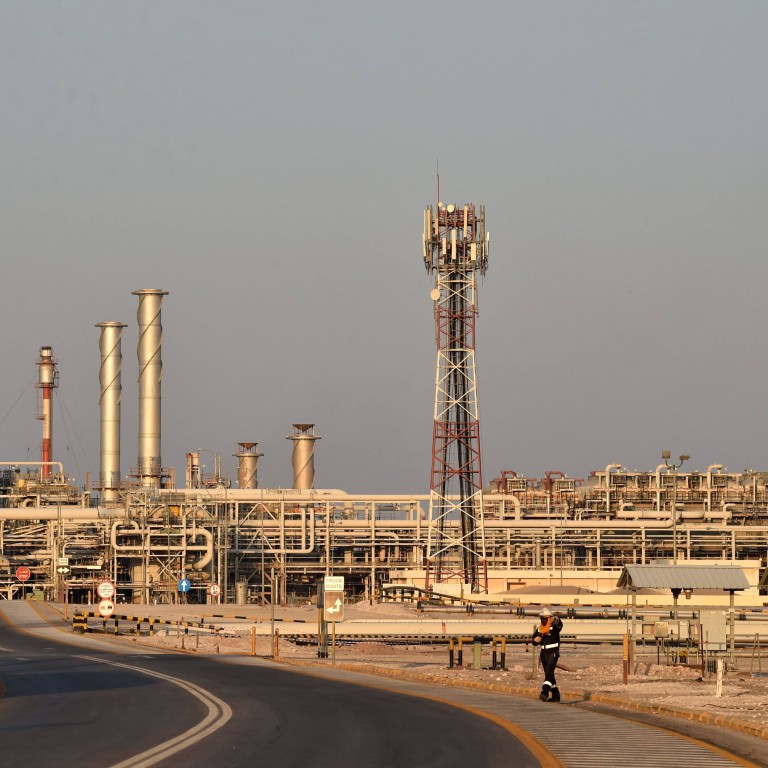
China seeks to boost ties with Saudis as Arab summit announced
- Beijing is seeking to enhance its energy ties with the Gulf at a time when the US-Saudi relationship is coming under strain
- President Xi Jinping’s attendance is yet to be confirmed, but Saudi Arabia has previously said he is planning to visit the country
There has been no announcement about which countries will attend the event and Beijing has not confirmed if President Xi Jinping will be present.
The event was announced in a very low-key manner, in the course of an interview given to the official Dubai newspaper Al Bayan by Chinese consul-general Li Xuhang.
A second reference to the summit by Li, who told a space exploration event that it would be a “major event elevating China-Arab relations”, was then published on the website of the Chinese mission to Dubai on Tuesday.
Will US-Saudi row allow China to expand its Middle East role?
Saudi Foreign Minister Prince Faisal bin Farhan has previously said Xi would visit the country.
Diplomatic observers described the event as a “milestone” for China’s relationship with the Middle East.
Li Shaoxian, a Middle East affairs specialist at Ningxia University, said there was a “big possibility” Xi would attend, and cooperation between the two sides would extend beyond energy supplies.
“China and Arab countries can potentially cooperate on technology, including space cooperation. Because Arab countries, especially the Gulf countries, the United Arab Emirates, Saudi Arabia and Qatar all have a strong desire to explore space,” he said.
“This summit may be an opportunity for the all-round development of the relationship between China and the Arab world.”
Wang Jin, a Middle East affairs professor at Northwest University in Xian, said the China-Arab summit would serve as a new platform for cooperation between the two sides.

“The US may feel that this may erode their interests, or it may strengthen China’s development advantages in the future,” he said.
The influence of the US in the Middle East has been called into question, especially following the chaos caused by the withdrawal of its troops from Afghanistan last year.
Meanwhile, China has been forging closer ties with Saudi Arabia. In a meeting with Prince Faisal last month, Chinese Foreign Minister Wang Yi said Beijing appreciated its pursuit of an “independent energy policy” and active efforts to maintain the stability of the international energy market.
Will US-Saudi feud over oil prices send Riyadh barrelling towards China?
In a meeting between the head of China’s national energy administration Zhang Jianhua and his Saudi counterpart Prince Abdulaziz bin Salman, both sides agreed to continue cooperation efforts to maintain stability in oil markets, according to the official Saudi Press Agency.
China and Saudi Arabia are reportedly in talks to settle oil deals in yuan, a move that could undercut the US dollar as the default currency for the energy trade. Exports to China accounted for 27 per cent of Saudi Arabia’s total crude oil exports last year.
Beijing has also been working to enhance ties with other Gulf states. On Monday it signed a landmark US$60 billion agreement for purchases of liquefied natural gas from Qatar and has previously signed an agreement with the United Arab Emirates to send a probe to the moon.
In response, Washington has warned Middle Eastern countries that closer ties with China will hamper their relations with the US.
“There are certain partnerships with China that would create a ceiling to what we can do,” the White House’s Middle East Coordinator Brett McGurk said on Sunday.
The UAE has been told by the US not to use Chinese telecoms giant Huawei Technologies for its telecommunications network, and is also under pressure from Washington after it suspended talks to purchase F-35 fighter jets and other weapons.
Victor Gao, vice-president of the Centre for China and Globalisation, said the summit with China marks a “high point” for China-Arab ties which have been developing in fields such as energy, technology and defence.
“Saudi Arabia or other Gulf and Arab countries all believe that it is very important to develop a peaceful and mutually beneficial cooperative relationship with China,” he said.
But Jonathan Fulton, a political science professor at Zayed University in the UAE, said Arab nations were concentrating on economic opportunities rather than the US-China rivalry.
“China has emerged as a major trading partner for every country in the Middle East. Its state-owned enterprises do a lot of significant contracting throughout the region, and it is an important source of investment. Addressing economic pressures is a top level concern, much more immediate than political problems between Washington and Beijing,” he said.
Saudi Arabia ‘committed’ to China oil supply, exploring other collaborations
Li, from Ningxia University, said: “It is an indisputable fact that America’s influence has declined in the Middle East and in the world. This is a trend. And the adjustments in its relations with the oil-producing countries in the Gulf are inevitable, especially amid the Russia-Ukraine tensions.
“But both the US and countries like Saudi Arabia will not want to break their ‘oil-for-security’ framework. Their future relationship will still rely on this framework. The oil-producing countries like Saudi Arabia and those in the Gulf still hope that the US will provide them with security.”


 - Kawala Xie.jpg?itok=NogZcyZ-&v=1661304068)